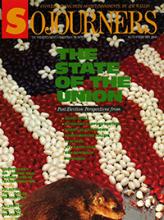As this is written on November 22, 1988, the pop-cultural atmosphere is a-swamp with remembrance of things Kennedy. All the old made-for-TV movies have been trotted out for the umpteenth annual rerun. Public television has provided a steady procession of the usual talking heads mouthing about what it all meant. And if you were really feeling bored and alienated, you could always seek refuge in fiction, where Don DeLilo's Libra, an imaginary biography of Lee Harvey Oswald, rides the best-seller list.
Twenty-five years down the road, the Kennedy assassination stands as an unmended rend in the fabric of American history. In popular perception, the bullets that killed JFK also killed the shiny, idealistic promise of the '60s. Deprived of the leader who could have carried us forward together, the nation descended into an orgy of war, upheaval, and alienation. That's a debatable historical analysis, at best. But it is popular perception, and that makes it real.
The sense of loss over what might have been, and the sense that we are still adrift in a strange land all these years later, is compounded by the fact that, in popular (and historically justifiable) perception, Kennedy's murder remains an unsolved crime. We keep picking it over with the hope of finally discovering who really killed him and why, and thus laying the demons to rest. But we're also afraid that finding out who really did it and why might only unleash even fiercer demons.
Read the Full Article

